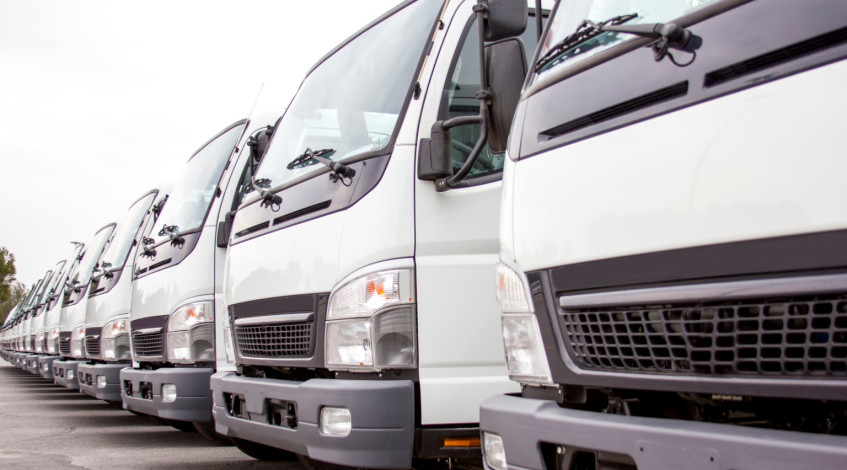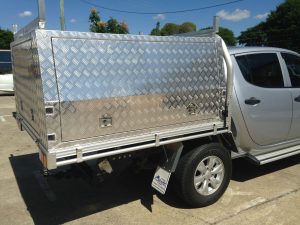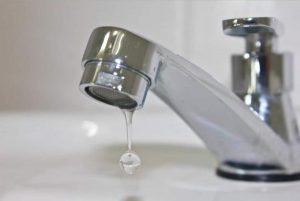Few things frustrate business owners more than watching profits slip away at the pump. For plumbing companies, where every van is constantly on the road, fuel costs can feel like a leak in the budget that never stops dripping.
Fuel expenses account for nearly 30% of operating costs for small service-based businesses in Australia. For plumbing companies, where multiple vans travel daily, that percentage can climb even higher.
Inside, you’ll learn how a fuel card works, the problems they solve, and why they’re quickly becoming an essential for tradies.
What Is a Fuel Card and How Does It Work?
A fuel card is a payment card designed specifically for purchasing fuel and related vehicle expenses. Unlike a standard credit card, it is linked to fleet and expense management.
Fuel cards are especially important for trades-based businesses like plumbing, electrical, and roofing companies where vans or utes are on the road daily.
For example, a plumbing company with three vans traveling across the Gold Coast can use fuel cards to keep fuel expenses separate from personal purchases, track GST for tax purposes, and make it easier to manage multiple employees refueling at different locations.
Cost Control Improves with Fuel Card Reporting Tools
Most fuel cards are accepted at major service station networks across Australia. This means plumbers don’t need to drive out of their way to find a specific fuel brand.
By consolidating purchases into one account, a fuel card eliminates the hassle of paper receipts and allows business owners to see all fuel spend in a single monthly report.
How Fuel Cards Turn Fuel Purchases Into Valuable Business Insights
A fuel card eliminates the hassle of collecting and storing dozens of paper receipts. Instead of employees handing in crumpled dockets at the end of the week, every fuel transaction is logged automatically and itemised in one centralised statement.
For business owners, this provides a clear picture of the following
- where money is going
- which vehicles are using the most fuel
- whether spending patterns are consistent with job activity
The single monthly report also simplifies bookkeeping and tax preparation. Because GST and transaction details are already recorded, there’s no need to manually sort through piles of receipts or reconcile mismatched expenses.
Fuel cards help plumbing companies maintain tighter cost control, improve budgeting accuracy, and plan for growth with confidence.
Real-World Problems a Fuel Card Solves for Plumbers
1. Rising Fuel Prices Affecting Margins
Plumbing companies rely heavily on vans and utes to get to jobs quickly. If each van uses 60–80 litres of fuel per week, the cost difference of just a few cents per litre quickly adds up.
Rising costs may force plumbing businesses to increase service rates, potentially making them less competitive. Worse, unmonitored fuel spending can lead to cash flow issues.
2. Managing a Fleet of Vans (Not Just One Vehicle)
Overspending, misuse, or uneven vehicle efficiency can drain profits and reduce operational control. Businesses risk higher maintenance costs and reduced accountability among employees.
Without a system in place, it’s difficult to know which vehicles are most efficient or whether any are being misused.
Owners can spot which vans are guzzling more fuel, detect unusual spending patterns, and budget more effectively. This creates accountability and allows smarter decisions about vehicle use and maintenance.
3. Tracking GST for Tax Compliance
When fuel purchases are handled in cash or via personal credit cards, receipts must be collected, stored, and reconciled. Incorrect or incomplete GST claims may result in lost deductions, audits, or penalties from the ATO. Time wasted chasing down paperwork also takes focus away from running the business.
Fuel cards generate consolidated monthly statements with GST already itemized. This makes tax reporting accurate, easy, and stress-free, while ensuring compliance.
Factors to Consider When Selecting a Fuel Card
- Coverage Across Fuel Stations – A card that works across Shell, BP, Caltex, Ampol, and 7-Eleven ensures convenience no matter the job location.
- Discounts and Savings – Fuel cards make it easier to manage rising costs by building small but powerful fuel savings into daily operations.
- Fees & Charges – What seems like the most affordable option may come with hidden costs, so always look closely at the terms.
- Reporting Features – Fuel card reporting provides transparency at every level. Owners can track drivers’ fuel spend, tax obligations, and anticipate maintenance needs.
Adapting Fuel Card to Fit Your Plumbing Business Needs
| (1–2 vans) | (3–10 vans) | (10+ vehicles) |
| Flexibility and low fees are the priority. A card with simple reporting and broad station coverage can help keep costs manageable. | Discounts and detailed reporting start to matter more. Being able to track each vehicle ensures cost control. | Advanced features like spend limits, driver ID tracking, and integration with accounting systems can save hours in admin. |
Conclusion
Every litre counts, and a fuel card makes sure plumbers get the most out of every dollar spent at the pump. Fuel cards turn fuel management from a messy overhead into a streamlined business tool, which is why they’re becoming a must-have for plumbing companies of every size.
Best Plumbers Club equips plumbing companies with valuable information that supports smarter decision-making in the trade. When plumbing companies need clear, dependable advice, Best Plumbers Club is the go-to source for trade knowledge.
Frequently Asked Questions
What are the different types of fuel cards?
The main types include:
- Single-brand cards – tied to one fuel network (e.g., Shell, BP).
- Multi-brand cards – accepted across multiple stations for wider coverage.
- Fleet cards – designed for businesses managing several vehicles, with advanced reporting and controls.
Are fuel cards worth it for small businesses?
Yes. Fuel cards are valuable for small businesses because they offer access to fuel discounts, help monitor spending, and make tax reporting easier with itemised statements. Even a single work vehicle can benefit from the cost control and convenience.
How to apply for a fuel card?
Most providers allow you to apply online by completing a short business application form. You’ll need to provide details such as your business name, ABN, contact information, and estimated fleet size. The fuel cards will then be issued to your business and can be allocated to drivers or vehicles.







